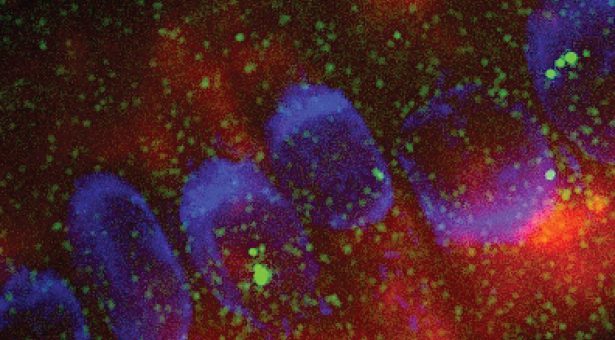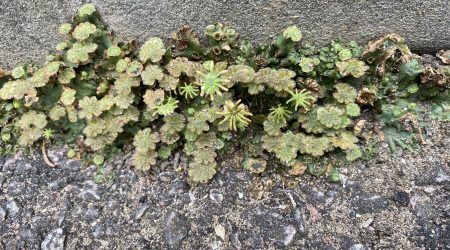Research uncovers first evidence of RNA-triggered phase separation

A fundamental question in biology is how cells orchestrate chemical reactions in time and space.
Membraneless organelles are the centre for many of these chemical reactions.
It is understood that a process called Liquid-liquid phase separation (LLPS) plays an important role in the formation of these centres of biochemical activity. But how is this important process regulated?
Evidence is mounting that phase separation is driven by multiple interactions between proteins and/or nucleic acids.
Previous studies have mainly focused on phase separation driven by proteins, our understanding of how RNA contributes is more limited.
Research by the John Innes Centre, the Dr Zoe Waller lab at the University of East Anglia and the Professor Philip Benfey lab at Duke University, USA reveals a phase separation-like phenomenon which RNA goes through in plant root cells.
Biophysics analysis showed that RNA structures called G-Quadruplexes – extremely stable structures found in RNA or DNA – could drive RNA to form phase separation especially under physiological conditions. The study suggests that G-quadruplex structures provide the trigger for phase-separation phenomenon in nature.
Dr Yiliang Ding, the corresponding author of the study says: “Our study provides the first evidence that RNA can adopt complex structures to trigger and or maintain phase separation, providing the possibility of a new regulatory role in plant root development.”
Dr Yueying Zhang, the first author of this study says: “Our study also provides evidence that RNA structure might play a key role in determining the specificity of RNA phase separation.”
The study: ‘G-quadruplex Structures Trigger RNA Phase Separation’, appears in the journal Nucleic Acids Research.



